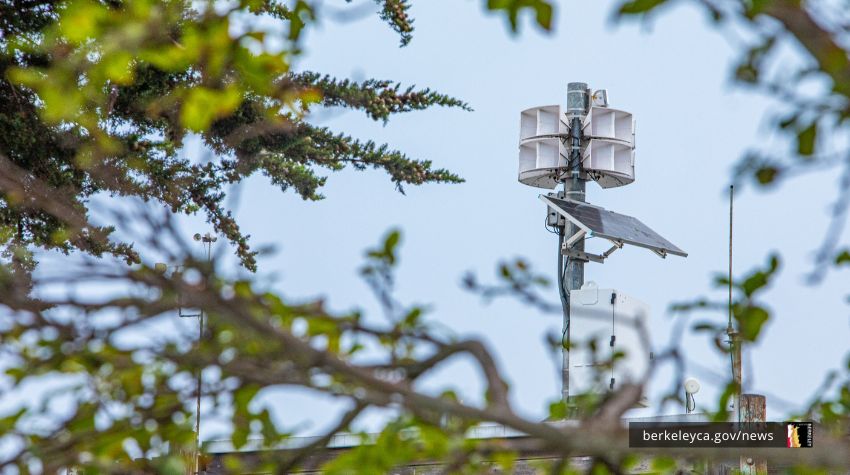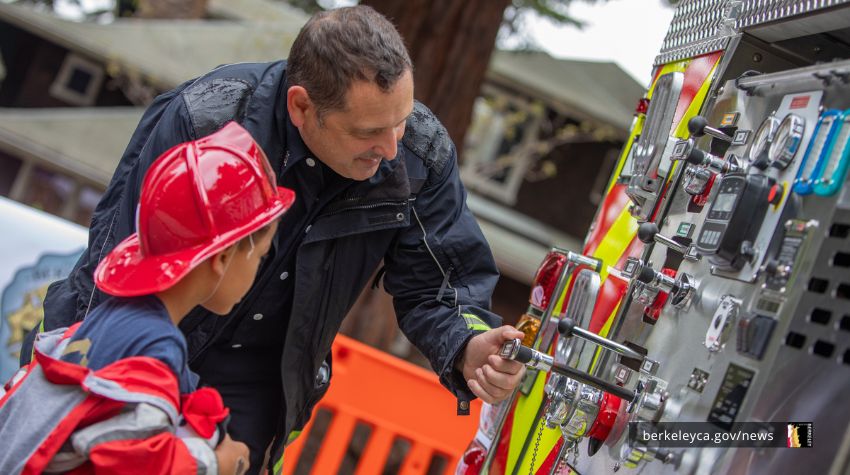Measure FF: Emergency Response and Preparedness Parcel Tax
Measure FF provides funding for fire services, emergency response, 9-1-1 communication, hazard mitigation, and wildfire prevention.
About Measure FF
Measure FF provides $8.5 million in funding annually from parcel taxes to pay for fire services, emergency response, 9-1-1 communication, hazard mitigation and wildfire prevention. Berkeley voters passed Measure FF in November 2020 with 74.2% approval. The original ballot question read:
Shall an ordinance enacting a tax at a rate of $0.1047 per square foot of improvements, which is estimated to generate $8.5 million annually for firefighting, emergency medical response, 9-1-1 communications services, hazard mitigation, and wildfire prevention and preparedness, until repealed by the voters, be adopted?
Status
In the 2022 financial year, the City of Berkeley spent $3 million on 11 projects in the areas of disaster preparedness, department operations, emergency medical services, and employee development and training.
Projects June 2021–June 2022
Disaster preparedness
In FY 2022, Berkeley invested $1.5 million to better prepare our community for disasters through three key projects:
- Established a Wildland Urban Interface Division within the Fire Department to focus on improving the City’s preparedness for and resilience to wildfire. This team inspected 8,500 properties (83% more than the previous year) to ensure that they meet City’s requirements for ‘defensible space,’ a buffer between buildings and any combustible materials (such as vegetation).
- Initiated public outreach for the development of a Community Wildfire Protection Plan. This plan will lay out the risks that Berkeley faces from wildfires, and goals and projects to help manage these risks.
- Purchased a city-wide outdoor warning system to assist with emergency notifications. Staff have started the process of identifying 15 locations to install the outdoor speakers.
Department operations
In FY 2022, $500,000 supported initiatives to help improve department operations:
- Evaluated the Berkeley Emergency Communications Center to understand what improvements are needed to meet the community’s growing needs.
- Analyzed the department’s resources to determine if they are sufficient to meet national standards for call processing and response times.
- Assessed the City’s seven fire stations to provide recommendations for safety improvements.
- Increased the number of personnel trained to respond as Hazardous Materials Specialists and added capacity detect synthetic opiates, including Fentanyl.
- Searched and located a new facility for Fire Department headquarters that is large enough to accommodate the expanding needs of the organization.
Emergency medical services
Berkeley spent $800,000 to improve the quality and efficiency of its emergency medical services:
- Redesigned staffing model to staff ambulances with EMTs and paramedics instead of firefighter paramedics.
- Restructured the emergency medical services division to provide better training, oversight, and administrative support for staff fielding medical emergency calls.
- Initiated recruitment for a new position to manage the Continuous Quality Improvement (CQI) program.
Employee development and training
An investment of $100,000 went towards improving training to ensure that staff are prepared to respond to emergencies:
- Split off training as a stand-alone division with its own Assistant Fire Chief and additional staff.
- Began the process of search, acquisition, and development of a fire training center.
Management and oversight
The Fire Department manages the emergency response and preparedness projects funded by Measure FF.
The Disaster and Fire Safety Commission and City Council review and approve projects to receive Measure FF funding.



